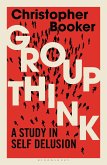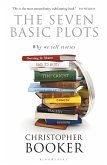
22,99 €
Versandfertig in über 4 Wochen
Gebundenes Buch
A Study in Self Delusion
19. März 2020
Bloomsbury Academic / Bloomsbury Continuum
404862,900196769

20,99 €
Versandfertig in ca. 2 Wochen
Broschiertes Buch
Why We Tell Stories
17. September 2019
Bloomsbury Publishing PLC
900225528
Hörbuch-Download MP3
The True Story of Britain and the European Union Ungekürzte Lesung. 1537 Min.
23. September 2021
Bloomsbury Continuum
12,99 €
inkl. MwSt. und vom Verlag festgesetzt.
Sofort per Download lieferbar
20,99 €
Versandfertig in 1-2 Wochen
Broschiertes Buch
Why We Tell Stories
14. Juli 2017
Bloomsbury Trade / Continuum
201602
3,99 €
Sofort per Download lieferbar
eBook, ePUB
15. März 2016
Baker Publishing Group
3,99 €
Sofort per Download lieferbar
eBook, ePUB
15. März 2016
Baker Publishing Group
1,49 €
inkl. MwSt. und vom Verlag festgesetzt.
Sofort per Download lieferbar
eBook, ePUB
16. Oktober 2012
Little, Brown Books for Young Readers
3,99 €
inkl. MwSt. und vom Verlag festgesetzt.
Sofort per Download lieferbar
eBook, ePUB
19. Januar 2019
Terry Marchion
Ähnlichkeitssuche: Fact®Finder von OMIKRON
